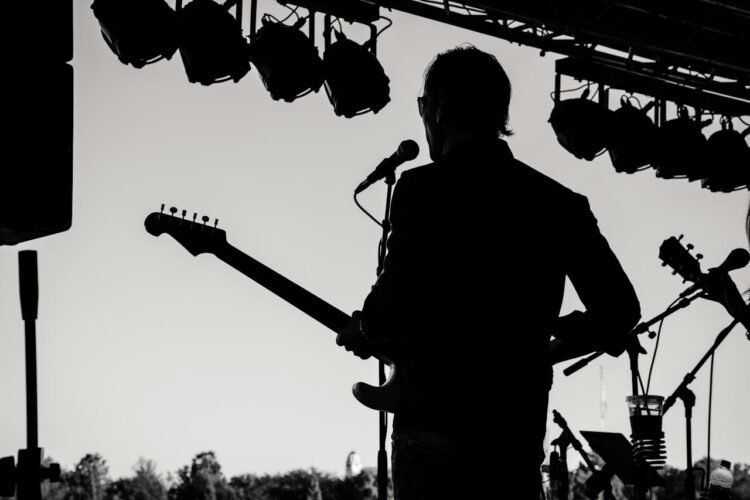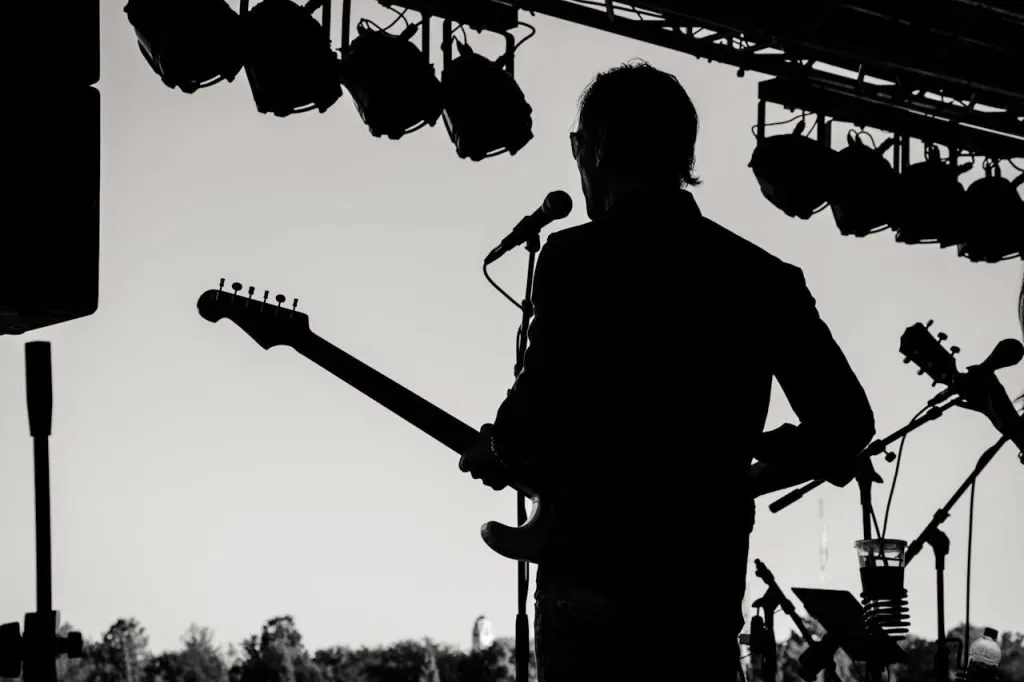The music industry is at war with AI music startups, battling tooth-and-nail to protect its AI. But how much can the robots really replace?
My wife walked in on me listening to The Velvet Sundown.
‘What’s this?’ she asked. Shit, I thought to myself. Somehow, in the non-stop sonic stream flowing from my Sonos speaker, this caught her ear?
I told her she was listening to a completely AI-generated band with fake members. I showed her the picture of the fake group.
‘Oh, that sucks,’ she said. ‘Really?’
And just like that, it was over. Somehow, the emotion went from ‘this is interesting’ to ‘f— this’ in about 5 seconds. The AI thing has already gone too far for her.
But if she liked the music initially, why did the knowledge that it was AI kill it entirely?
The answer to that question gets to the heart of why AI music may not be quite the existential threat we’ve been panicked about.
For starters, the big problem with AI music — at least v1.0 AI music — is that it’s so damn bland. But far more importantly, the human element may still prevail — and this isn’t just happy talk from a frightened industry stakeholder.
Which brings us to the billion-dollar question: Will human authenticity trump AI-generated ‘creativity’ in the long term? Or at least keep it at the margins when it comes to lucrative fan relationships?
The question is now worth asking, particularly as AI-generated songs spun from your iPhone are becoming parlor tricks.
I’ve tried to make myself feel something emotional with AI-generated music. But that’s like trying to fall in love with a robot. A bland robot that never felt left out, never got dumped, never needed a drink and doesn’t spill its guts into a track.
At one moment, The Velvet Sundown’s singer reminds me of Chris Cornell — but if all the rough edges were smoothly sanded down and replaced with vapid platitudes for lyrics. Cornell screams about a rusted cage, and I’m ready to break something. The Velvet Sundown singer? He’s spinning an emotionless word salad of protest, peace, and classic rock idealism — and it feels like I’ve had too much NutraSweet.
So, human authenticity saves the day? The logic goes like this: sure, we mythologize our musical heroes — whether Kurt Cobain or The Weeknd — but the dirty little secret is that the underlying tracks can always be generated for any performer. And this was true long before AI hit the scene. So who’s the superstar, the ultra-rare charismatic personality that breathes life into it all and connects with people?
In a recent chat with DMN, one industry mover+shaker calmly predicted that a purely-generated AI smash hit is the next shock to the system.
But what about the rest of the hits?
Most pop music already incorporates some level of AI, both within the actual songwriting and production processes and in elements beyond. But does that mean AI-generated avatar bands and songwriting bots are primed to take this game over? This is still ‘early days,’ but perhaps the smarter bet is that human artists will continue to be the emotional glue for human fans.
Sure, Timbaland’s over at Suno trying to make an AI band stick. But is that scary future realistic, or only partly realizable?
There’s a dystopian hell-hole to plunge into here, though some voices are pointing to increased longer-term revenues thanks to AI advancements. Look no further than the ongoing negotiations between players like Suno and major music label groups, which could theoretically open a fresh wellspring of IP licensing.
Indeed, some sub-sectors of the industry are facing serious existential threats and seismic shifts, including areas like mastering, sync, background music, and songwriting itself. For the broader business, perhaps AI is another big adjustment — but not a Napster-like tsunami.
You can feel the more philosophical mood change happening.
“I’m sure we’re going to be seeing artists that are not humans or that don’t exist in human form becoming popular,” Grammys chief Harvey Mason, Jr., recently told The Wall Street Journal. “I can imagine people wanting to listen to songs by a voice that doesn’t even exist on Earth.
“But to me, what’s always going to be meaningful to a fan or a young kid growing up is somebody that they can associate with or aspire to be, and somebody that’s had a human experience. So my hot take is that AI artists will be around, but there’s always going to be the great human artist that is going to trump any of the artificial artists.”
But if AI isn’t ‘taking over,’ as the dystopian narrative goes, will humans still get squeezed out?
Enter Spotify, which is already notorious for shifting streams to ‘fake artists’ to lower its overall royalty obligations (just ask Liz Pelly). Suddenly, the Velvet Sundown appears to be getting dismantled. But are hundreds of other AI ‘bands’ and ‘artists’ in the wings — with Spotify and other DSPs further lowering their royalty costs in the process?
That’s yet another billion-dollar question, though music listeners may simply vote against AI music en masse: no coordinated rebellion, just a preference for genuine, authentic humanity.
Sounds like bad news for Spotify, but good news for the music industry and the (mostly) non-AI music it generates.







